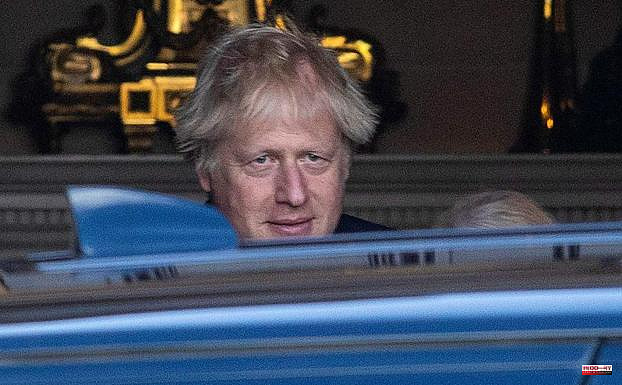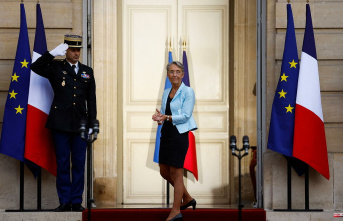Boris Johnson's diplomacy in Northern Ireland to promote the restoration of autonomous institutions, suspended last Friday, was rejected on Monday by the parties that advocated the permanence of the United Kingdom in the European Union, and received a conditional response from the largest unionist party, DUP, which advocated leaving the EU and now denies its consequences.
The newspaper 'Belfast Telegraph' published in anticipation of his visit a long article in which the British Prime Minister rejects the idea of "discarding" the Protocol that regulates the region's membership of the common market, and shows his conviction that it exists " a sensible landing point where everyone's interests are protected." His conversations may have served to identify him.
The explanation in the article of the economic drawbacks caused by the Protocol in the region (brurocratic excesses, non-application of VAT as in the rest of the United Kingdom,...) and the softer tone are part of the Government's new strategy . Johnson declares his hope that Brussels will "change the position". But, if it does not happen, "there will be a need to act."
This Tuesday, Foreign Minister Liz Truss, who is negotiating with the European Commission, will present a statement in Parliament in which she is expected to detail the Protocol reforms that London wants. Those changes would be translated into a bill, if the Commission does not respond positively to the requests of the Johnson Government.
The planned calendar is a few weeks to negotiate the changes and, if an agreement is not reached, it would take months, perhaps a year, for the bill to be processed. The leader of the DUP, Jeffrey Donaldson, pointed out after his meeting with Johnson that his demand for action is not limited to words, but to the "enactment" of the law partially repealing the Withdrawal Agreement.
Without a quick agreement, the restoration of autonomy - where there would be new and superfluous elections in six months - is lost on the horizon, as long as Donaldson keeps his word. Without the support of the DUP, autonomy cannot be sustained, because it requires the support of the two main parties, which now represent nationalists and unionists.
Mary Lou McDonald, leader of Sinn Féin, who won the recent elections, said after a "tough" meeting with Johnson, that she does not have a red line whose violation would lead to her withdrawing her support for shared autonomy. She, however, harshly criticized the prime minister, because his goal is to "placate" the DUP and give "a unionist party a veto."
In their morning article, Johnson's advisers recall that the Good Friday Agreement was achieved with the principles of consensus and the "rigorous impartiality" of the governments. He stresses that he will apply them now as well. The discomfort after their meetings of Sinn Féin, the Alliance and the SDLP, which make up a majority of the elected and want reforms but support the Protocol, demonstrates the difficulty of the task.
7












